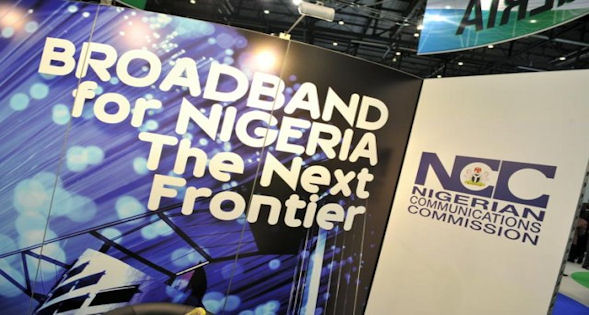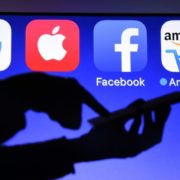 Broadband Nigeria:
Broadband Nigeria:
8 Reasons to consider broadband investment in Nigeria
Broadband connectivity is expected to witness the next explosive growth in Nigeria’s burgeoning ICT sector where a mobile revolution lifted telephone subscribers from less than 450,000 to over 95 million in only 10 years. Telephone subscription is currently over 100 million. “Broadband” refers to high-speed Internet service that—unlike dial-up modem service—is always “on.” This technology has become widely available throughout most of advanced economies and its potential to transform business and open access to homes is well established.
Riding on the success of its mobile telephony revolution, Nigeria is opening its broadband market for investors in a move designed to expand access, encourage broadband applications to drive other sectors and yield much dividends to investors. “The same three things that fuelled our success in voice will fuel our success in the delivery of broadband services in Nigeria – clear government policy, effective and independent regulation that attracts the necessary investments and again spectrum,” said the country’s Minister of Communication Technology, Mrs. Omobola Johnson.
Private sector and Foreign Direct Investments (FDI) of more than $25 billion has gone into the telecom sector in the last 10 years to make the sector one of the most vibrant on the continent. With the increasing sophistication of corporate Nigeria and the rising traffic of data over voice, broadband demand is surging to make investment both imperative and strategic for both government and private sector investors.
General picture of Nigeria’s Internet market
Nigeria’s voice revolution is well known helped by the three factors enumerated by its Communication Minister, Mrs. Johnson – right government policy, effective and independent regulation; and availability of spectrum. Its Internet subsector is just beginning to pick fired by explosive growth in mobile phone subscription and the attendant mobile Internet, often bundled with voice services. But this has had little or no significant leaving the market open for massive broadband investment and requiring the direct intervention of the country’s regulator to encourage investors. According to the Executive Vice Chairman of the Nigerian Communications Commission (NCC), Dr. Eugene Juwah, “the current development has made very little impact with the estimated penetration of broadband in Nigeria varying from less than 2% to less than 5%. In fact it is evident that there is practically no broadband market in Nigeria, the huge broadband capacities on our shores notwithstanding. The challenge of the distribution of this capacity inland is the obvious task the regulator must confront.”
According to the Internet World Statistic, Nigeria occupies the 11th position With 45.04 million people that use the Internet, out of a population estimate of 170.12 million people. This means that 125.08 million other people are still not connected to the Internet, despite the presence of SAT 3, MainOne, West Africa Cable System, Glo 1, and others undersea cables as well as a government owned communications satellite, Nigcomsat 1R .
Less than five or ten percent of what is available have been consumed, so there is a big difference between what is delivered and what is consumed which means that where investment is needed now is to build a backhaul infrastructure to distribute all of that down here,” said Funke Opeke, managing director of MainOne Cable Nigeria. Investors will to look at two significant ways to approach staking money in what is a potential goldmine. One is investing on Broadband Expansion and the other is investing on Infrastructure for Distribution to the consumers, both of which are lucrative, but the latter still remain untapped.
Gearing for broadband
So what should investors see as the green light? First is government commitment to revving up broadband access. Nigeria expects by 2015 to achieve 12% broadband penetration, 80% mobile penetration, 2% fixed line growth, 34% internet growth and 12% PC penetration. This expectation will largely drive the sense of seriousness on the part of the Nigerian government which should excite private sector investors. Secondly, the country already has a notable antecedent for which it is globally respected. ‘Nigeria has always made us proud and has consistently taken the lead for upwards of five years. It is not a joke to be the leader for five years. I commend you and I implore your leadership to continue to support the industry for continued growth and consistent support for the enabling environment for more investment and sustained success”, said Secretary General of the International Telecommunications Union (ITU), Dr. Hamadoun Toure of Nigeria. An ITU’s endorsement should further boost investors’ confidence.
Business beckons: 8 Reasons to stake your money here
(Here is a quick guide for investors to bring in the money as researched by eT Edge Intelligence in conjunction with Baobab Consult).
1. It’s a huge market. Build and they will come
With less than five percent of the population only able to access broadband, Nigeria is at dawn of another revolution in the telecom sector. Here is how the country’s Minister of Communications Technology put it: “We stand at the cusp of a data revolution and there are many corollaries between where we stand today and the contextual factors that were present pre the telecoms revolution. For example, the demand for broadband services, just as the demand for voice services is known but also latent. The pricing and the availability of broadband today bears many similarities to the pre GSM telecoms market – access to voice services was expensive if you got it and it didn’t always work because of infrastructure issues – remember those days of picking up the phone from the cradle and waiting for a dial tone! Average broadband speeds today are slow and with a penetration rate of just 6% or thereabouts it is not ubiquitous – demand has already far outstripped supply.” There is demand, more demand and then more demand within government (there are 36 states in the federation craving for access). In the big cities like Lagos, Kano, Port Harcourt, Abuja and many others, penetration is still very low despite surging demand from privately owned enterprises.
2. The regulator, an umpire par excellence
Nigeria’s regulatory environment has remained stable and attractive to the global investment community. It has remained both proactive and dynamic repeatedly demonstrating capacity to respond to trends in the industry. It has remained both independent and efficient; and has often been touted as one of Nigeria’s rare success stories despite existing challenges. A stable and independent regulator has ensure rapid uptake of telecom services and the steady inflow of FDI. The regulator has already unveiled the pathway for broadband connectivity to attract local and international investors. That pathway, an Open Access Model for the deployment of broadband across the country is designed to allow for broader participation and engagement of providers at different level points of broadband delivery.
3. Government policy
With telecoms, government got it right on policy. It is ensuring it also gets it right on broadband. The Nigerian government policy-thrust for broadband is fostered round a number of strategies to excite broadband usage and attract investors. They include:
i. Provide periodic review of the broadband penetration targets in order to determine further action for broadband expansion;
ii. Promote both supply, and demand side policies that create incentives for broadband backbone and access network deployment;
iii. Facilitate broadband development and deployment, leveraging on existing universal service frameworks;
iv. Provide special incentives to operators to encourage them to increase their investment in broadband rollout;
v. Promote e-Government and other e-services that would foster broadband usages;
vi. Enhance the equitable distribution of the value and/or benefits of telecoms infrastructure (in general) and broadband (in particular) amongst economically active members of the Nigerian population;
vii. Enhance the capabilities of the Nigerian population to make use of, and contribute to broadband, and in so doing increase its relevance to the socio economic development of the country and its populace;
viii. Establish a methodology for assessing progress of broadband development in Nigeria in a structured way that (i) highlights and (ii) seeks to address bottlenecks along/across all layers.
4. Open Access Model: A win-win model
To drive broadband deployment and engage service providers, the NCC has adopted the ‘Open Access Model.’ The model is in response to the infrastructural and operational problems currently faced in Nigeria, such as congestion and the unwillingness of operators to share backbone infrastructure. According to the ITU, “the open access model is a framework enabling fibre-optic cable carriers to share the infrastructure used in the deployment of their cables. The model separates the roles of the service provider and the network operator, and provides services to operators on a fair and non-discriminatory basis. The aim is to bridge the gaps in broadband availability through the central deployment of fibre by an independent infrastructure provider (Infraco) to operators and other major users, at a subsidized price. The open access network will be rented out on equal terms to service providers, companies and public operations, providing a competition-neutral environment to drive the development of the broadband market. Customers may be granted exclusive rights to use a line or an entire network structure. Features of the proposed model include an ownership option, a pricing strategy and a deployment strategy, as described below.
Ownership option
The most viable ownership option for open access deployment in Nigeria is an independent infrastructure provider (Infraco) licensed by NCC, who provides ducts and fibre in parallel to existing fibre deployments. The mandate of Infraco will be to supply an open and competition-neutral fibre network nationwide. The core tasks of Infraco will be to build, operate and maintain the fibre-optic communication network, and to lease fibre-optic connections to operators and companies as well as the public.
Pricing strategy
In order to make this model financially attractive to operators and service providers, pricing will be affordable. This is expected to be achieved through a cost-based pricing strategy, where operators pay the cost price for the provision of the service, plus maintenance costs. The strategy should be operator-neutral, providing a network that is open to all players on equal terms.
Deployment strategy
The network will be developed in stages, beginning with consultations with stakeholders and service providers. A detailed design will then be developed, and the network will be built. The core network will initially be deployed in central business districts and commercial centres in urban areas, where the demand for broadband is highest. The network will then be extended to commercial centres in peri-urban and rural areas. After deployment in commercial areas, the network will be expanded to key public institutions and residential areas, with priority being given to multiple-household apartments over detached villas.
As illustrated in the chart, NCC will license the independent infrastructure provider, regulate the rates that Infraco charges operators to lease infrastructure, and regulate the rates that consumers pay for broadband access. In addition, NCC will collaborate with other stakeholders in funding Infraco, facilitate agreements between various tiers of government and Infraco, and engage in dispute resolution among the various stakeholders.
“Open Access Model” according to Nigeria’s telecom regulator Dr Eugene Juwah
It is in response to addressing the above peculiarities existing in the Nigerian environment, that we have adopted as means of our regulatory intervention an inclusive process we call “Open Access Model” for broadband deployment. This is a model that provides a framework for sophisticated infrastructure sharing. Using this model, the broadband infrastructure market structure will be unbundled into three layers ‐ the passive, the active and the retail layers. This structure will ensure vibrancy in the market and prevent dominance as no company will be allowed to play in more than two of the service layers and the equity participation in bidding consortiums for the licenses will be controlled.
In this model, bandwidth will be provided by the active infrastructure providers to the retail service providers on a fair and non‐discriminatory basis. The active Infrastructure providers will buy bulk bandwidth from the submarine cable companies, which are then delivered via optical fiber owned by the passive infrastructure provider. Implementation of this model will bridge the gaps in broadband deployment, eliminate last mile issues, reduce the price of bandwidth for end users and unlock the market for massive broadband usage in Nigeria.
The Commission will issue licenses in the passive and active layers while price caps will be implemented in these layers using cost based pricing. In the retail service layer, multiple licenses will be issued, with pricing to end users determined by market forces. To enable service delivery at affordable prices for the end‐user, where it may not be economically viable to do so, the commission will offer financial incentives to the infrastructure providers to enable them operate reasonably profitably. In addition, the Government through the Commission will facilitate agreements and engage in dispute resolution among the various stakeholders.
In terms of implementation, we have already concluded preliminary studies that will enable cost effective deployment. In this process, we have developed a model for the deployment, and have engaged reputable internationally acclaimed consultants to drive strategy and design the processes for achieving our goals. Our overall plan also received quality advice and guide from the International Telecommunications Union, the global telecom regulatory agency which, holds the Nigerian regulatory processes in a very high esteem given our globally acclaimed transparency, fairness, expertise and the consultative disposition that attend our processes.
5. No restrictions on foreign investors for profits repatriation
Nigeria offers excellent investment conditions for foreign investors. As the success in the telecom sector in the last 10 years will show, foreign investors have had no inhibitions as to repatriating their profits abroad. The ‘Nigeria Fiscal Guide 2011’ by KPMG notes “There are no restrictions on foreign repatriation of profits as long as the documentation requirements are met and the appropriate taxes paid. Foreign investors engaged in activities that are included in the list of pioneer industries can also apply for pioneer status. A foreign investor is required to apply to the Federal Ministry of Interior for approval to establish a business and to employ expatriates. The investor should also apply for a Certificate of Capital Importation (CCI) in respect of equity investment in a Nigerian company to ensure remittance of dividends and repatriation of capital. Investment in Nigeria is regulated by the Nigeria Investment Promotion Commission Act 1995. Few restrictions are placed on investors. Foreigners are able to invest and participate in any enterprise in Nigeria except for those on the following “negative list” (local investors are also precluded):
• Production of arms and ammunition
• Production and dealing in narcotic drugs and psychotropic substances and
• Production of military and parliamentary wear and accoutrement.
In addition to capital allowances granted on fixed asset expenditure in lieu of accounting depreciation, investment incentives available to pioneer companies include:
• Exemption from income tax for 3 years with a possible extension of 2 years
• Tax free dividends during the holiday period and
• Losses in the relief period may be set off against profits after the end of the period.
6. Power sector reforms
Nigeria’s poor power supply has served as a major disincentive to prospective investors. Current generation is less than 6,000 megawatts (MW). “The lack of officially generated power means that Nigerian businesses rely on expensive electricity from imported small generators, reducing the efficiency of all sectors of the economy,” says Charles Robertson, global chief economist at Renaissance Capital as quoted ‘How We Made It In Africa.’
But a major power sector reform has commenced to ensure more efficient power generation that “will have a dramatic impact on all sectors of the Nigerian economy” including the broadband connectivity sector. Government is already overhauling the power sector and has started a privatization process that should alter for good the power landscape. “Better electricity supply could free up Nigeria to grow at 10% to 11% annually instead of the 7% to 8% seen in the past decade,” added Robertson.
7. Follow the market. It will not evolve, it will explode
The broadband sector will clearly give early bird advantage to first entrants. Government as the mobile telephone sector did for MTN and other early entrants. According to the National Bureau of Statistics (NBS) the telecommunication sector recorded a real GDP growth of 29.77 per cent in Q2, 2012 and represents one of the most vibrant sectors of the economy. The prospect for high yield growth in the sector is still strongly positive despite the installed capacity of 167.840 million lines in the telecommunications industry as at October, 2011, an increase of 6.34 per cent over 157.839 million lines as at December 31, 2010. The installed capacity is made up of Mobile GSM, Mobile Code Division Multiple Access (CDMA) and Fixed wired/wireless in the proportion of 84.14%, 10.2 per cent and 5.60 per cent respectively. There were 93.92mn active telephone lines, representing 55.96 per cent of the installed capacity, while there were 31.21 million inactive lines of the total 125.14 million connected lines. The connected lines represent 74.56 percent of the installed capacity as at October 2011 notes the FSDH report while quoting statistics from the NCC. Nigeria is currently the largest telecoms market in Africa and MTN with 43 million subscribers is the country’s leading operator. It was the first to launch service in 2001. As at June 2012, it recorded a profit of $2.5 billion. There are four GSM operators in all in Nigeria. Average Revenue Per User (ARPU) hovers around $11. MTN early entry offers a classic example of taking the initiative when the market is still green. It entered the market when its South African based rival, Vodacom was dithering on making a go for the Nigerian market. Today, MTN is able to leverage its Nigerian strength to ebb out Vodacom from the Africa’s fiery telecom market. Vodacom has severally expressed its regret for eternally losing the investment opportunity in Nigeria. The new broadband market is sure to record its massive losers and winners. Once service starts rolling from networks, uptake will be explosive. A new World Bank report on Nigeria notes that growth prospects are robust, and expected to grow by 7.1% and 7.4% for 2012 and 2013 respectively. According to the Bank, Nigeria’s growth will largely be driven by the non-oil sector. The consumer services sector (financial, telecommunication, wholesale and retail) which is one of the main targets of private equity investors in sub-Saharan Africa’s most populous economy, will continue to provide a strong impetus to growth and job creation.
8. Not just a market but market with capacity to spend
Nigeria boasts of a growing economy and an attractive consumer base with an incraesing purchasing power. As investment expert, Jude Uzonwanne writes in the reprot ‘Investing in Nigeria: A brief Strategy Guide,’ “Despite the risk, rumors and hype, the fundamental reason many companies are giving Nigeria a second look is simple: The country is populous [over 170 million people and counting], with a fast-growing economy and an emerging middle class that is demonstrating an increasing level of confidence. Nigeria’s young population and economic growth make it the largest high-potential consumer market in Africa and fertile ground for companies looking for growth opportunities. Simply put, investors do not just have a ready large market. They have pulsating one with more consumers likely to have an enhanced spending power in the next few years.
According to Wikipedia, “Nigeria is a middle income, mixed economy and emerging market, with expanding financial, service, communications, and entertainment sectors. It is ranked 30th in the world in terms of GDP (PPP) as of 2011, and its emergent, though currently underperforming manufacturing sector is the third-largest on the continent, producing a large proportion of goods and services for the West African region. Previously hindered by years of mismanagement, economic reforms of the past decade have put Nigeria back on track towards achieving its full economic potential. Nigerian GDP at purchasing power parity more than doubled from $170.7 billion in 2005 to $413.4 billion in 2011, although estimates of the size of the informal sector (which is not included in official figures) put the actual numbers closer to $520 billion. Correspondingly, the GDP per capita doubled from $1200 per person in 2005 to an estimated $2,600 per person in 2011 (again, with the inclusion of the informal sector, it is estimated that GDP per capita hovers around $3,500 per person). It is the largest economy in the West Africa Region, 3rd largest economy in Africa (behind South Africa and Egypt), and on track to becoming one of the 20 largest economies in the world by 2025.”





























